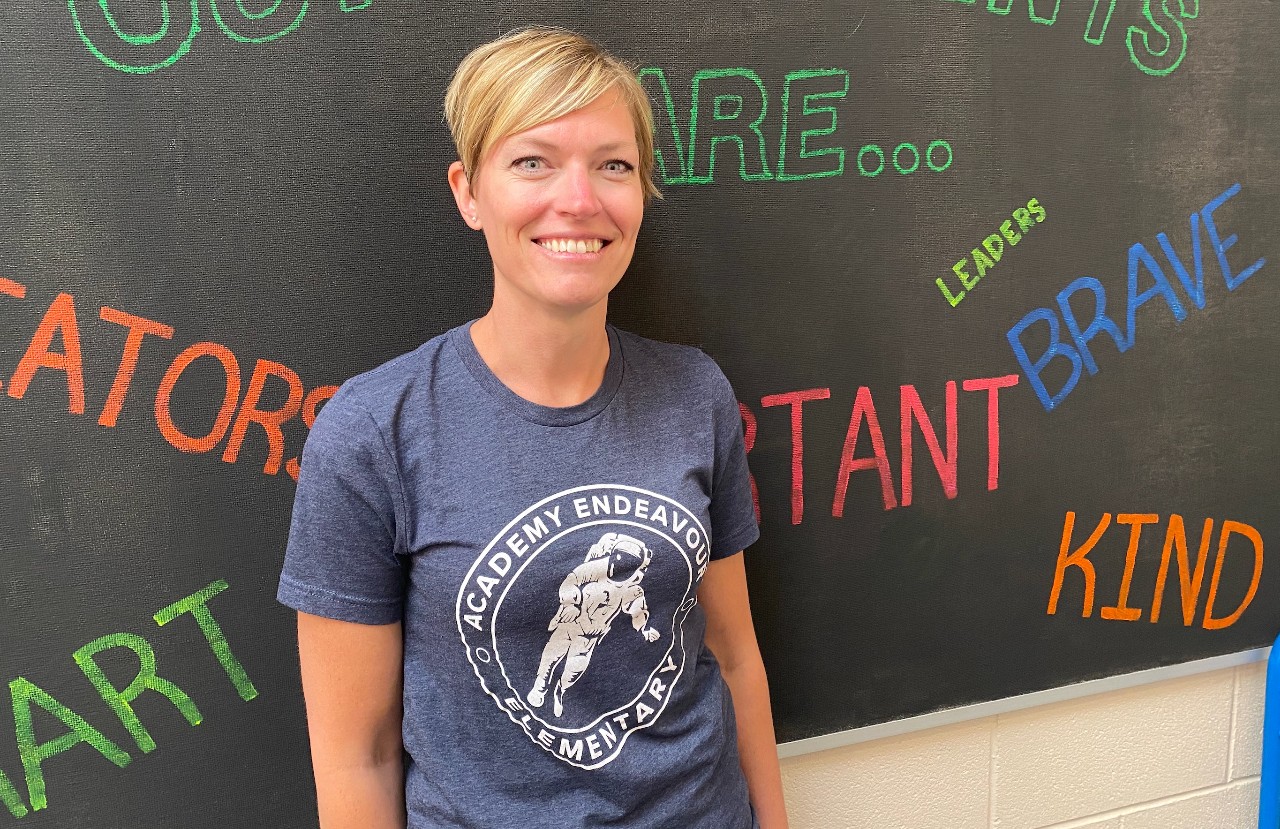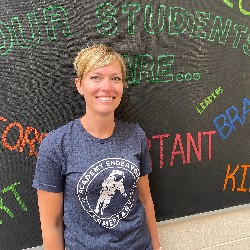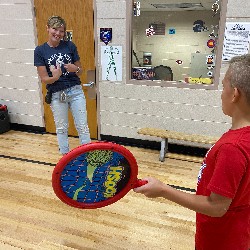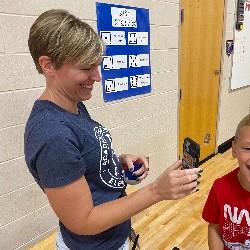Morse advocated for an overhaul the Affective Needs Program. Her goal was creating a culture of belonging so all students, no matter their needs, were included in their classrooms. Students with Affective Needs (AN) often struggle with social, emotional and behavioral disabilities.
Before the change, students with AN at AEES spent most of their school day in a special education classroom. Even though this met Colorado Department of Education standards, Morse wanted to empower these students so they could thrive with their peers in a general education classroom.
“If we’re treating kids with social and emotional disabilities, we’re not helping them by keeping them secluded from everyone,” Morse said.
When the 2021-22 school year began, “Morse worked with every teacher to completely restructure the program allowing students in AN to be in class as much and as safely possible,” Shelah Hansen, principal of AEES explained. “The students still had access to her and the AN team when they needed an emotional strategy or intervention.”
One year later, and with the help of paraprofessional, every student in AN at AEES spends more than 70% of their days in general education classrooms.
“As a first-year teacher, she has reshaped this program and as a result reshaped the entire culture of our building,” Hansen said.
The transition wasn’t always easy, but it paid off.
“There was a learning curve, but when teachers started to see these students succeed, they wanted to be part of every moment, the good and bad,” Morse said.
Educating and Inspiring Students to Thrive
At the start of each school day, Morse welcomes her students at the front door. Before escorting them to their primary classrooms, students identify where they might need help for the day.
“I try to give them independence and control, within boundaries,” she explains. Some students express a concern with reading, while others ask for support at recess. This approach allows Morse and her team make sure they’re nearby to step in if necessary.
Morse argues, it’s important to be in the classroom when her students are succeeding too. “I don’t want them or their classmates to only expect me when something is wrong. I want to protect their dignity.”
Why Education?
Before becoming the AN Teacher at AEES, Morse often found herself in a position to serve students. She was originally introduced to a student with special needs at church, when she was asked to sit with a young girl who needed extra supervision.
“I had never done anything like that before, but I absolutely loved it,” she said.
Years later, when her own kids had started school, she began substituting across Academy District 20 before becoming an AN paraprofessional at AEES. Then a new opportunity presented itself. Morse was asked to apply for the role of Affective Needs Teacher, allowing her to lead the program.
Coming to ASD20
Before moving to Colorado Springs, Morse earned a bachelor’s degree in Early Childhood Development from Brigham Young University-Idaho. She used her education to home-school her six kids while they moved around the country.
The degree allowed to her play a crucial role as a substitute teacher and eventually a paraprofessional. After accepting the position as AN Teacher at AEES, Morse decided to go back to school.
In December, she will graduate with a master’s degree in Special Education from Colorado State University-Pueblo. She explains, “I just never thought I would be a teacher until I was here.”
Rapid Fire Questions
What is your why?
“I feel like if I don’t do what I do, these kids will get lost. I want them to know I’m happy they’re here and we’re excited to see them. We start every day fresh and whatever happened yesterday doesn’t matter.”
Tell me about a time a student made a lasting impact on you.
“When I first started this program, I had a student who was in the AN program for about two years. When we made changes and I put him in a classroom, he thrived. He took the standardized testing for the first time, and he was learning to read. Before we made the switch, I would ask him to write his name and it would turn into a four-hour escalation. Now, I’ve been able to watch him read aloud. It’s amazing.”
What do you in your day to value all students?
“When I’m in classrooms, I’m not just there to support the students with AN, I’m there to support all students. I find myself in reading groups and sitting on the floor to join a game.”
What keeps you going on the hard days?
“Having the mindset that tomorrow is a new day. I tell my students; we won’t let the bad days roll over into tomorrow and that we’re going to find a solution.”
If you could pick a superpower, which one would it be?
“I have always wanted to fly. When I was a kid, I had vivid memories of telling my family I wanted to fly.”
When you were a student, what did you love to eat for lunch?
“Most days, I brought my lunch, but one day a week, I could have a hot lunch and it was always Pizza Day!”
What is your favorite school supply?
“My favorite is whiteboard markers.”
Finally, is there a quote that inspires you?
“No significant learning occurs without a significant relationship.” – Dr. James Comer
We are honoring our people through sharing their unique stories. This regular new feature, aptly named “Our People,” will shine a light on who they are, their passions and their contributions. The people who uphold our traditions of excellence. We hope you enjoy these stories and will nominate someone to be highlighted in “Our People.”



